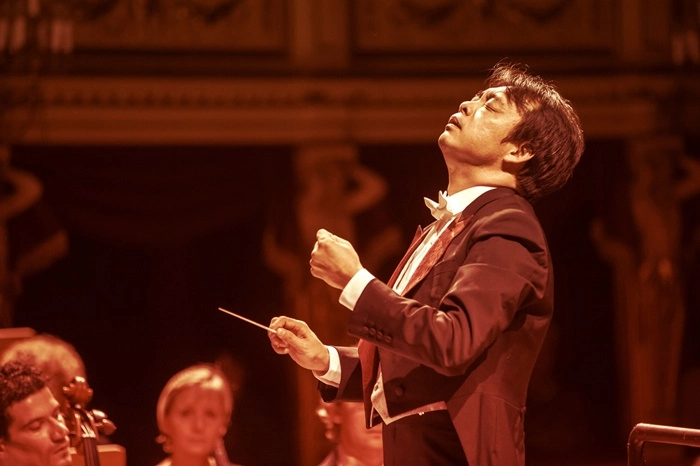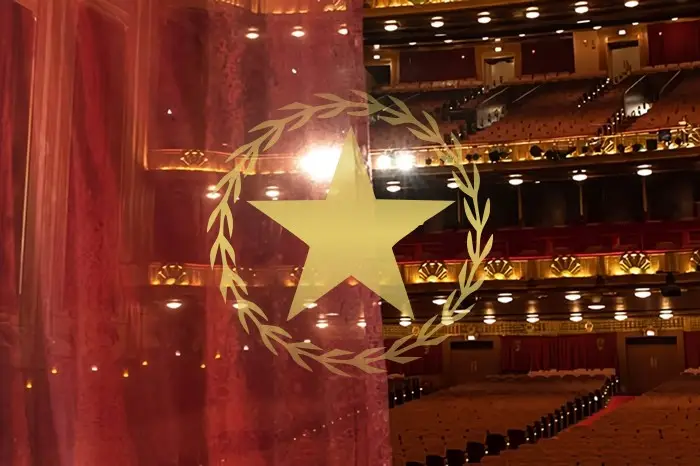
In Odesa on September 10th, the renowned Japanese conductor Hirofumi Yoshida, who serves as the Musical Director of the Pavarotti-Freni Municipal Theatre of Modena and is currently the Principal Guest Conductor of the Odesa National Academic Opera and Ballet Theatre, conducted Giacomo Puccini's "La Bohème." In an interview with the Kyiv Post, Maestro Yoshida shared his experiences.
Maestro Yoshida, this isn't your first time conducting in Odesa. How did your collaboration with the Odesa Opera orchestra begin?
The introduction to the Odesa Opera orchestra happened through an invitation from music impresario Enrico Copede on December 20, 2020, a day I remember vividly due to the cold weather. He even gifted me a beautiful Cossack hat. The initial encounter with the orchestra went remarkably well, and I felt a strong connection and energy from them. While they were already skilled musicians, I brought the Italian musical style, which I've absorbed during my 20 years of living in Italy, despite being of Japanese origin. Having built my career in Italy, one could say that I've absorbed Italian music into my very being. This was the foundation of our excellent relationship. Together, we successfully staged "Madame Butterfly" by Giacomo Puccini, thanks in part to the talented young singers. Within a month, they offered me the role of the main guest conductor of the theatre, a significant recognition.
In the 21st century, it's challenging to find individuals with great sensitivity who are willing to support culture. Fortunately, my extensive career in Italy and my reputation as the only conductor performing Italian opera in the home of opera itself, Italy, makes it easier for me to connect with influential individuals in Japan who can contribute.
In Japan, we've met with representatives from the Foreign Ministry and parliament, including Eisuke Mori, the head of the Japanese Parliamentary Friendship League "Japan-Ukraine." He expressed keen interest in the idea of inviting the Odesa Theatre on a tour to Japan with government support. The Japanese government has embraced this concept and initiated procedures to make it a reality, likely in 2024 or early 2025. The Japanese are committed to assisting by sending Japanese artists abroad or hosting Ukrainian artists. This commitment encourages the Japanese government to finance various musical initiatives. For instance, the Japanese embassy in Kyiv has already supported the Opera Theatre with state-of-the-art projectors funded by Japan. Japanese national television NHK is also closely following this project and was present during the performance of "La Bohème" on September 10.
How does Odesa resonate in Japan? Can you share any personal anecdotes about the city?
I have a secret to reveal: "Odesa" is a name known to all generations of Japanese, thanks to a highly popular manga, a quintessential Japanese animated series featuring a robot named Gundam. In this story, the antagonists hail from a planet called "Odesa." There's even a climactic battle, the Apocalypse, against the Odesa planet.
Being a Japanese conductor specializing in Italian opera music in Ukraine, how does it influence art, music, and performances?
I believe I represent several facets: Italian musicality, distinct from Japanese music, Ukrainian identity, and my own Japanese heritage. Here in Odesa, I find myself in a unique middle ground; I am closer to the East, yet simultaneously, I feel more connected to Italy than Japan. With two decades of experience in Italy, I can affirm that interpreting the Italian style, which is very particular, can be challenging for foreign orchestras (non-Italian ones). Furthermore, each composer has a distinct style, be it Rossini, Puccini, or Verdi. My aim is to impart all the musical experiences I've gained in Italy to bring Italian musicality to the forefront. While Italy, Japan, and Ukraine are vastly different entities, I strive to create synergy by drawing from the strengths of each.
There's a local legend that the Odesa Theatre has historically focused on Italian repertoire, making Odesa musicians more familiar with Italian music than with German or Russian music.
Indeed, I can confirm this. However, I arrived here only three years ago and haven't had the opportunity to hear them perform German or Russian music. I did have the privilege of witnessing their renditions of "La Forza del Destino" by Giuseppe Verdi and "La Gazza Ladra" by Gioachino Rossini, and I sensed their genuine sensitivity to the Italian repertoire. It's safe to say that they have a strong tradition and a deep understanding of Italian music.



